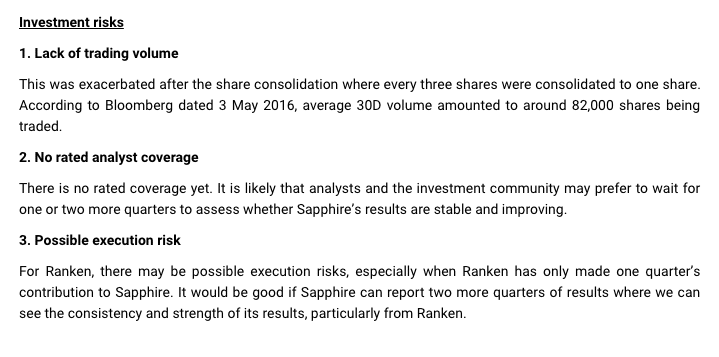Contracts for a difference, CFD is an interesting investing opportunity in the stock markets. A contract for difference is as simple as it sounds. There is a buyer and seller who set-up a contract in during the beginning of the trade and the person makes money depending on the price of the stock during the closing trade.
Contracts for difference are prevalent in many countries like Russia, Singapore and some European countries like France and Australia as well. But in the United States they are highly regulated as they are considered Swaps and they come under a particular law that needs to be followed.
Contract for Difference Trading Singapore
A trade is done with a CFD provider and this is how it works.
Step 1: You decide on a stock for example, Facebook at the price of $110.
Step 2: You decide to purchase 100 shares at $110 (100 X 110 = $11000)
Step 3: The trading fee of $100 is added to it and the total cost is now $11100
Step 4: Say hypothetically Facebook’s share price at the end of the day goes to $118.
Step 5: This means the value of your holding comes to (100 X 8 = $800)
Step 6: So your profit is ($800 – $200* = $700)
*Buy and Sell incurs $200.
Best part is you can use a upfront capital of 10% total contract price.
Upfront investment: 10% of (100 x $1100) = $11,000
ROI: $700 / $11,000 = 6.36%.
The above is a simple example of how the price movements during a day can get you a profit or a loss. If in the above example, if the Facebook stock went down then you would have made a loss.
CFD Trading Meaning
High Leverage Trading!
Above example is how you can have a quick ROI. But if position goes against you, it means you will lose more!
Leveraged Trading
The Stock Market has been a mystery for decades and for generations of people one after another. Every generation has struggled with how the market works and how money can be made and have asked the same set of questions over and over again. The market in its entirety is a simple system to understand.
The prices of the stocks in the market fluctuate based on demand and supply. If there were a lot of people buying, then the price would increase, if people were selling the price would decrease.
Pros and Cons of CFD trading
Pros
- The Ownership of Shares:
As CFD’s are just contracts there is no trouble of owning a stock. This is perfect for traders who do not have to deal with the exchange, but just the brokerage companies that deal with CFD’s
- Dividends:
One of the biggest pros of CFD’s is Dividends. You can actually get paid the dividend provided by the company. CFD’s are aimed at taking the benefits of all the stocks without actual ownership, this means getting paid dividends.
- Versatile:
CFD’s aren’t restricted to only stocks, but Indices, mutual funds, currencies and commodities. This gives traders the chance to play to their strengths and take advantage of the price differences.
- Stop loss availability:
CFD’s can be pretty risky and that is why it’s always a good sign to be able to stop your losses. Brokers offer this option to CFD trader’s to cut their losses. This is probably the most important option for a CFD trader.
Read also: Should you Invest in Crypto or Trade in Crypto?
Cons:
- Not based on Fundamentals:
CFD’s are ultimately not fundamentally strong Investments. They are not what you would call Investments that’ll be bought by the likes of ‘Warren Buffet’. This means you cannot build for the future with Investments like CFD’s.
- Interest
CFD’s are almost like loans given to traders by the brokers. This means an Interest has to be paid when the trade is extended by more than a day. This is quite a big con because CFD trades are mostly small margins because of the price differences that are not huge between opening and closing. This added cost can eat on the profits or add on to the losses.
3. High Risk
CFD’s are extremely risky and they are probably only for a certain kind of a trader who wants to make a lot of money but with a lot of risk! Normal Investors and especially pensioners should not come close to dealing with CFD’s
READ ALSO: WEBULL REVIEW
How can CFD help in diversity of Investment?
CFD’s can be a perfect investment for the serious Investor. Let me explain.
A good Investor is the one who follows Buffet’s principles of Fundamental Investing and focuses on a few stocks. But this can sometimes be a limited approach. Most people have tendencies to trade and a great way to use a portion of their money could be to trade CFD’s.
Trading CFD’s teach Investors of pricing trends and movements. This will make them a good trend analyst. Most trend analysts have a mantra which is “Trend is my best friend.” Trend analysis helps in finding out prices that would be of good value during Investing.
CFD’s give an extra option for the Risk averse who want to experiment with more risky asset classes and gives them an opportunity to make them a lot of money within a short span of time. A good Investor always diversifies and they diversify their Investment styles as well to understand the other side.
Stock Trading with CFD in Singapore
Stock trading has come a long way and there are algorithms that help people with their trading. So in the current scenario what five rules should you follow to make money in stock trading?

Rule 1: Understand your objectives
This is where most people don’t give it a second thought. They don’t plan. You should have objectives and plans for your trading and how much money you expect to make. This would decide what your stop loss would be, this would decide what instruments you would be buying. Planning always helps and it definitely gives you a benchmark in this scenario.
Rule 2: What kind of trading?
There are many types of trading that you can do. Trading in futures, options, stocks and so on. Different type of trading involves different knowledge, skill sets and understanding. Futures and Options are risky but in many cases they can be predicted to the T and that can bring you a lot of money. So figure out your style of trading and the instruments you want to trade with.
Rule 3: There is a science behind trading
War is gamble. You don’t know who will win. But you still have to prepare and strategise for war right? In a similar light, you have to prepare for trading and there are very clear logic behind some trading decisions. Take a look at the following example. The following Image is the logic behind a trading decision.

Do you see how much data and insights has to be analysed to come to a trading decision? This is why trading has a science. Always look for opportunities. Create hypotheses and test those hypotheses by doing research. If you could back that hypotheses with data and come to a conclusion, you are almost predicting the future of a stock’s performance.
Rule 4: Trend is my best friend
This is the maxim followed by the best traders all over the world. The stock market has cycles of ups and downs. These cycles have patterns sometimes and they are also called trends. If there’s a pattern to something then it can be predicted with a reasonable amount of certainty. Many top Investors in the world use trend analysis to analyse when the markets will go up or down or when a particular stock will go up or down. Learn about trend analysis and you will be become a better trader in the market.
Rule 5: Know your risk and when to stop
As a trader you do not want to be scarred for life. A lot of traders start trading out of greed and get into the game without sizing up their risk appetite. If you cannot afford a lot of risk, you shouldn’t trade without thought. Understand your risk appetite, how much you can lose and trade accordingly. Set up a stop loss, appropriately. If you set up a stop loss, you don’t lose a lot of money when your trades come down. Always cut your losses and move on to bigger fights. In a few trades if you lose it all, you will never come back.
Disclaimer : Just like most Investment advice, it is better to do research on the different asset classes yourself and it is better to put in a small amount of money to start off, so that you do not burn your hands.
Read also: So what is Social Trading? Etoro Singapore – Anyone heard of it?